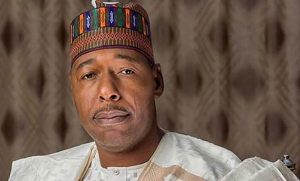The World Bank supported Agro-Climatic Resilience in Semi-Arid Landscape (ACReSAL) project will provide 25 hectares of woodlot plantations in some selected Local Government Areas (LGAs) of Borno State.

Dr Ngare Dogo, the Executive Director of Global Environmental Responds Initiative (GERI), the implementing partners, disclosed this on Wednesday, October 4, 2023, during a sensitisation visit to the Emir of Shani, Alhaji Muhammadu Mailafiya, in Shani LGA of Borno.
Dogo said the woodlots were part of measures under the ACReSAL project to mitigate the impact of climate change.
The executive director said Shani was among the LGAs for the woodlot plantations, adding that a Local Government Project Management Committee (LGPMC) would be inaugurated in Shani to serve as implementation partner for ACReSAL project in the area.
Also speaking, the Project Coordinator in Borno, Mr Ayuba Peter, said the project was for a period of six years.
According to him, it is expected to reduce the vulnerability of people in the benefitting communities as well as strengthen their roles in achieving environmental sustainability.
Peter, who was represented by Babagana Ladan, also urged people of the area and members of the LGPMC for maximum commitment to the project.
In his remarks, Mailafiya lauded Borno State Government for including the area in the programme and assured the traditional institution’s support for the implementation of the project.
Mailafiya, who lamented the devastating impact of erosion in the area, sought the support of ACReSAL in addressing the problem.
Highlight of the ACReSAL team visit to Shani was the inauguration of the LGPMC by the Chairman of the LGA, Prof. Jibrin Dibal, who tasked them on working for the success of the project in the area.
Dibal, who was represented by the Vice Chairman, Iliyasu Mohammed, said the people of Shani were excited to be part of the project.
The Monitoring and Evaluation Officer, Bukar Goba, and the Livelihood Officer, Yafati Mustapha, among other speakers, highlighted the need for commitment of stakeholders and how the project would lift many out of poverty, particularly women.
By Yakubu Uba
